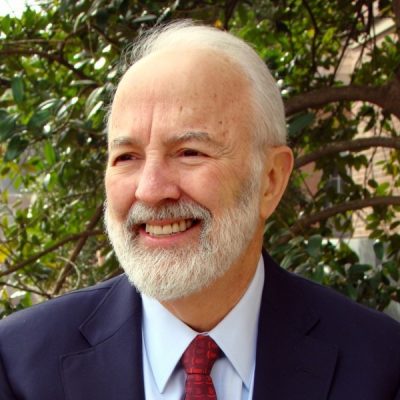
Food company promises related to healthy eating are rarely met
by Steph HazlegreavesBarry M. Popkin, The Global Food Research Program, shares the global experience with food industry self-regulation and reflects on how healthy eating promises are rarely met
Industry self-regulation or corporate voluntarism is “a regulatory process whereby an industry-level organization sets rules and standards relating to the conduct of firms in the industry.”(1) Participation is voluntary and frequently is promoted by industry as a socially responsible corporate practice intended to improve the welfare of consumers.(2) In 2004 the World Health Organization’s Global Strategy on Diet, Physical Activity, and Health indicated that unhealthy diets are the leading worldwide cause of major noncommunicable diseases, including obesity, heart disease, and type 2 diabetes.(3) Increasing scrutiny and criticism of the food and beverage industry’s role in the escalating global obesity crisis and the prospect of government regulatory action led many food companies and industry groups to embrace self-regulation, ostensibly acting to help alleviate these issues while also preempting mandatory policy actions.(2-8)
Industry self-regulations are a weak substitute for government action
Compared to most government policies, industry pledges are narrower in scope, poorly implemented and enforced, and inconsistent across companies and jurisdictions.(9,10) The food industry’s approach echoes the self-regulatory attempts of the tobacco and alcohol industries in that it seems motivated primarily by litigation and government movement to restrict key business practices.(2) The industry exemplified this by announcing self-regulatory pledges and policies in the midst of an active public health debate aimed to introduce evidenced-based public policies.(11-13)
The food and beverage industry has engaged in voluntary self-regulation in four main areas: (1) advertising and marketing directed at children, (2) front-of-package (FOP) labeling, (3) beverage sales in schools, and (4) reduction of unhealthy nutrients in the food supply. Independent evaluations of these initiatives have consistently found that they are vague, lack accountability, and ultimately have negligible positive impact. We provide a few examples below. A full document is in our website’s resources section.
Self-regulating unhealthy food marketing
Pervasive, highly targeted marketing for junk foods and sugary drinks is widely recognized as a key contributor to today’s childhood obesity crisis.(14-16) Reducing children’s exposure to unhealthy food marketing is one of the key obesity prevention measures the World Health Organization,(16-19) the Pan American Health Organization,(20) the European Union,(21) and the World Cancer Research Fund International(22) among others,(23-25) recommend.
With the prospect of government regulatory action looming, food and beverage industry groups in many jurisdictions devised voluntary pledge schemes to address the issue. These include multi-country initiatives, such as the EU Pledge(26) in Europe and the International Food and Beverage Alliance (IFBA) Global Policy on Marketing Communications to Children,(27) and national schemes, such as the US Children’s Food and Beverage Advertising Initiative (CFBAI),(28) the Australian Responsible Children’s Marketing Initiative,29,30 the Canadian Children’s Food and Beverage Advertising Initiative,(31) and others.(32-34) This is problematic for several reasons.
- The nutrition criteria industries use to determine which products are “healthy enough” to market directly to children are much weaker and more permissive than the criteria independent nutrition experts and health officials recommend.(5,35-38)
- Pledges only offer protection for children under age 12 even though unhealthy food marketing also negatively impacts older children and adolescents.(39,40) For this reason most government marketing regulations protect older age ranges as well.(41)
- Loopholes allow companies to claim high compliance with self-regulatory promises while continuing to promote unhealthy foods to kids.(35,36,42) Extensive evidence shows self-regulatory promises do not work.(5,36,43-45)
- Food package strategies are of particular concern, as they influence children both at the point of purchase and during consumption, and industry groups have gone out of their way to exclude them from self-regulations.(46-48) Packages on junk foods, especially sugary breakfast cereals, are frequently directed toward children, prominently featuring licensed or branded characters that appeal to kids.(14,49-51) Studies show that these strongly influence children’s preferences, choices, and even taste perceptions.(52,53) Self-regulation of package marketing does not work.(27-31,39,54-56)
Self-regulating beverage sales in schools
We review in-depth on our website the many industry failures to create specific proposals and follow through with them.
Self-regulating the reduction of unhealthy nutrients in the food supply
To bridge the gap between industry-led self-regulation and mandatory policies government groups and health-focused organizations have formed public-private partnerships to broker pledges from private food and beverage companies. Most often they center on reducing excessive nutrients of concern, such as sugar and sodium, in the food supply through product reformulation, introduction of new products, or changes in business strategies. Examples and what the evidence shows follow.
US Healthy Weight Commitment Foundation (HWCF) marketplace pledge. In 2007, 16 food-manufacturing companies pledged to collectively sell 1.0 trillion fewer calories in the United States by 2012 and 1.5 trillion fewer calories by 2015 to help reduce obesity nationally, especially among children.(57) They met the health goal, but research shows the improvements were actually less remarkable than what might have been expected from the existing downward trends in the years leading up to the HWCF pledge.(58) Rather, the declines observed were likely due in large part to lost market share as shoppers shifted purchases to private label brands following the Great Recession.
UK Public Health Responsibility Deal (RD). The RD is a partnership between government agencies, the private sector, and other nongovernment organizations launched in 2011.(59) In the area of food, participating industry groups and companies could voluntarily pledge actions, such as nutrient labeling (e.g., on packages or in restaurants); reducing calories, sodium, or unhealthy fats in products; or encouraging consumption of fruits and vegetables.(60) Research shows the industry made no additional significant changes61 but tried to shift the focus to individual consumer behavior rather than industry activities. The industry favored the RD as an alternative to policies it opposed, such as mandatory FOP labels and sugary drink and junk food taxes.(62) Once the UK passed a tax, sugar consumption reduced,(63,64) but other RD pledges for reduced sodium and trans fats fell short.(65)
Conclusion: Industry self-regulation is not the answer
- Self-regulation is voluntary. Companies can choose to participate or not and face no meaningful consequences for nonparticipation or noncompliance with pledges.(10)
- In contrast with the recommendations of world health leaders, industry self-regulations are insufficient in scope and coverage, use weak nutrition criteria, and lack enforcement and penalties strong enough to ensure compliance.(12,42,66)
- Self-regulation continues to be the most common approach globally to address industry’s role in the ongoing obesity crisis despite more than a decade of independent research demonstrating that these voluntary measures are ineffective and insufficient.
- Mandatory policies with rigorous monitoring and enforcement are needed to achieve meaningful improvements in the food environment, in dietary intake, and ultimately in the prevalence of obesity and other diet-related chronic diseases.
Click here to view references.
Please note: This is a commercial profile
Contributor Profile

Barry M Popkin
Jr. Distinguished Professor
Gillings School of Global Public Health
Phone: +1 (919) 962 6139
Email: POPKIN@UNC.EDU
Website: Visit Website
Twitter: Follow on Twitter